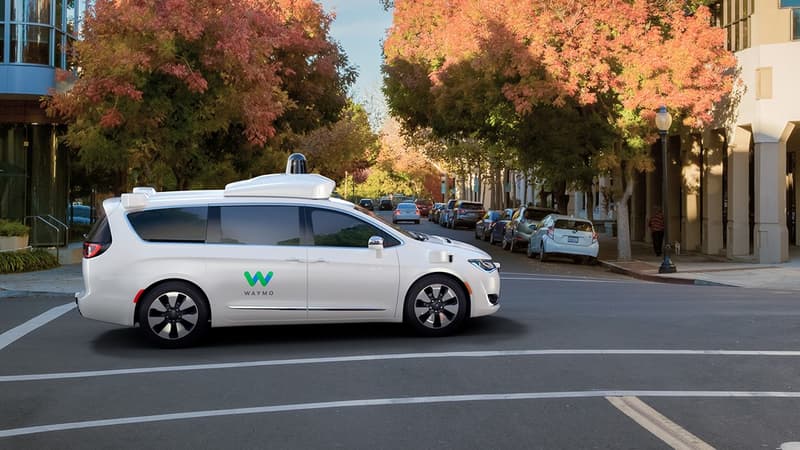Almost 4,000 times around the Earth. Last summer, Waymo announced that its robotaxis had traveled more than 100 million miles. But only in the United States. In addition, the driverless vehicle specialist announced this Wednesday its intention to test its robotaxis in London in 2026, a first in Europe for this subsidiary of Alphabet (Google).
London, new robotaxis playground?
“We plan to offer trips, without people behind the wheel, in 2026,” writes the company in a press release, which will begin by mapping London neighborhoods, while seeking to obtain the necessary authorizations.
The chauffeur-driven passenger vehicle booking platform Uber announced in June that it wanted to launch similar services in the capital, in collaboration with the British start-up Wayve, which specializes in artificial intelligence (AI) systems for autonomous vehicles.
Chinese internet giant Baidu and US ride-hailing app Lyft have also outlined plans for robotaxis in the UK in 2026.
London adopted legislation on automated vehicles (Automated Vehicles Act) in 2024 in order to accelerate the development of these services in the country, in which Europe is far behind the United States and China.
“Promoting the sector” will increase accessible transport options while creating jobs, investment and opportunities in the UK,” said Heidi Alexander, Secretary of State for Transport, quoted in Waymo’s press release.
A very positive result
The Alphabet subsidiary’s robotaxis already circulate on the streets of five American cities, particularly in San Francisco, where the company operates 800 vehicles.
“More than ten million paid trips” have been made in the country, highlights Waymo, which ensures that its technology is involved in “twelve times fewer collisions that cause injuries to pedestrians compared to humans.”
The company is associated, in particular, with Jaguar Land Rover (JLR), whose autonomous electric I-PACE “enable hundreds of thousands of trips” every week in the United States, but also in Tokyo, where a pilot program has been launched.
Source: BFM TV


